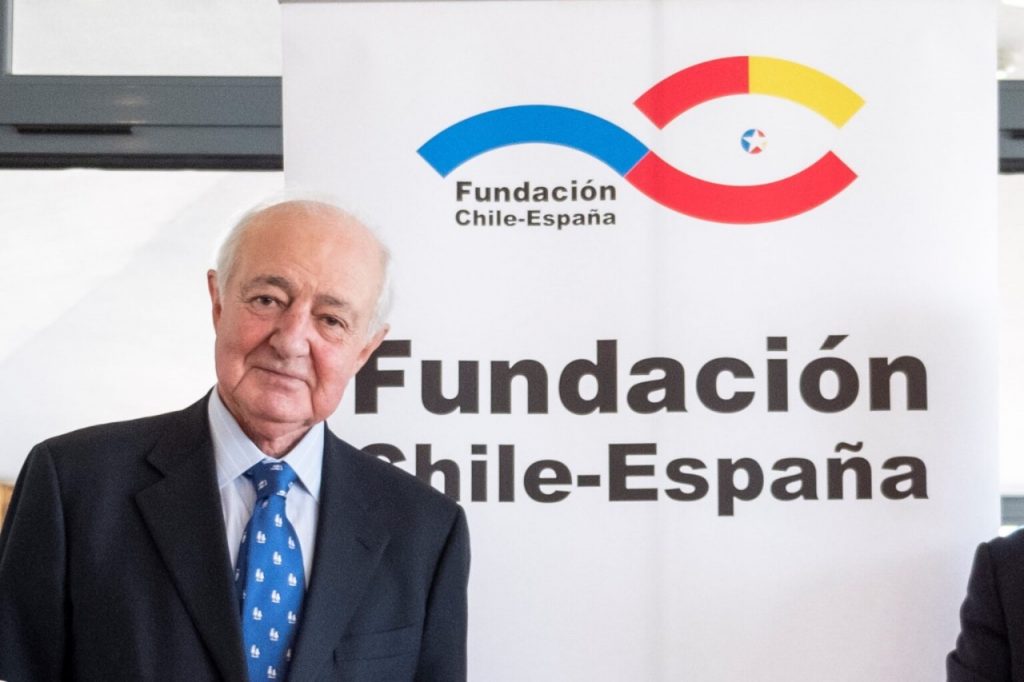Emilio Gilolmo: “Chile is facing the COVID-19 pandemic with good results”
The President of the Chile-Spain Foundation (FCE) talks about how Chile is facing the pandemic, what initiatives are being taken by FCE companies to mitigate the effects of the coronavirus, the opportunities that are emerging in the market and what the post-COVID-19 reality will be like.

In recent weeks, through the catchword #FCEorgullosadesusempresas, the Chile-Spain Foundation has been reporting on a series of initiatives by its partner companies, either through solidarity actions or developing innovative programs to manage, investigate or combat the effects of the coronavirus, as well as the expertise of its employers and collaborators.
And in the opinion of its president, Emilio Gilolmo, while the pandemic progresses in Latin America in a very unequal way, there are countries that seem to have managed to establish successful strategies in containing and mitigating the transmission and number of deaths due to COVID- 19. “This is the case of Chile, which, although it has confirmed a large number of infections (14,885 infected), so far reports one of the lowest case fatality rates in the region (216 deaths), according to the Ministry of Health. They took drastic measures very quickly, “he says.
In an interview published on the FCE website, Gilolmo recalls that -thinking about future recovery- Chile is a country open to the world, and has 29 agreements signed with 65 markets, representing 67% of the world population and 88 % of global GDP.
For this reason, he affirms, “it is still very interesting to take advantage of its export capacity, to use the Chilean market as a platform for third countries. Likewise, it is a country that encourages foreign investment which will help to overcome the economic crisis and will continue to be a very attractive place for trade and investment. Furthermore, it should be noted that, among the members of the OECD, Chile is one of the least indebted countries, which offers some space for public indebtedness”.
Today the Chile-Spain Foundation, like many institutions, has had to cancel or postpone meetings it had scheduled, but they are continuing with the programme they had planned for the last quarter. These include the III Chile-Spain Health Forum, to be held in Madrid and which will aim to present the challenges of the health sector in the 21st century and the needs and transformations of the sector that are emerging, both in Chile and in Spain from COVID-19.
“In the times we are living we believe that it is very necessary to create instances where we can share good practices, innovation and success stories between different countries and analyze the important opportunities that are opening up in this sector for companies,” says Gilolmo.
In that sense, he says, opportunities arise from all crises. This was the case in 2008, when after the crisis companies learned to internationalize quickly, finding new markets and businesses.
“In this case, the business opportunities that are emerging from this terrible pandemic are numerous and many companies, as well as entrepreneurs, are developing interesting innovative solutions for both the present and the future that lies ahead. Proof of this is the numerous applications that are being given to copper in Chile with the aim of fighting the coronavirus,” he says.
On the other hand, this crisis offers opportunities in many other sectors such as renewable energy, cybersecurity, technological innovation, and of course, in the health sector, where a window of opportunities opens up.
“In Europe, an alliance for a green recovery to the current crisis has been launched. These movements will be key for us to emerge from this crisis as environmentally more sustainable and ecological societies. We hope that the boom in investments in renewable energies, sustainable supply chains and circular economy will continue, many of which were presented at COP 25, which took place in Madrid under the presidency of Chile, which is at the forefront of the fight against climate change ”, says Emilio Gilolmo.
